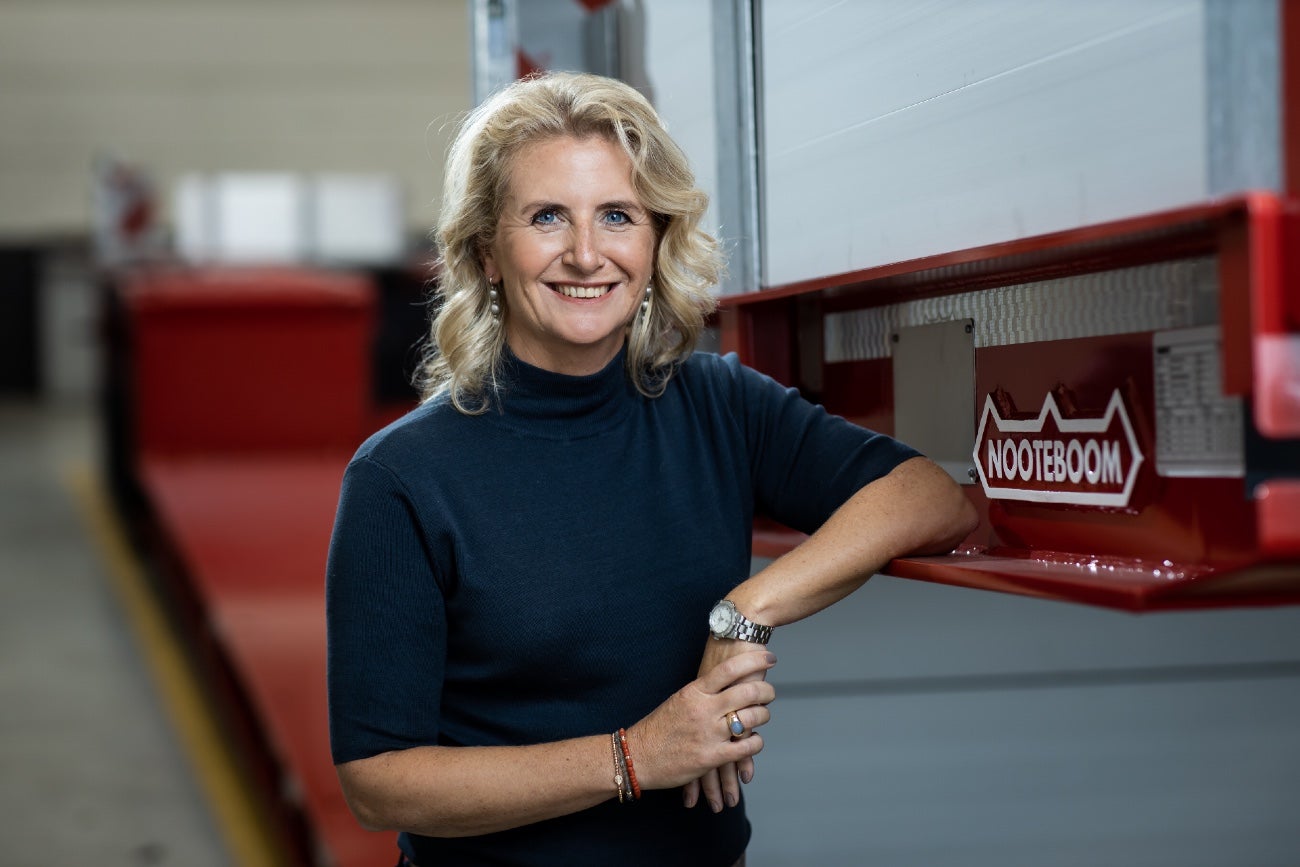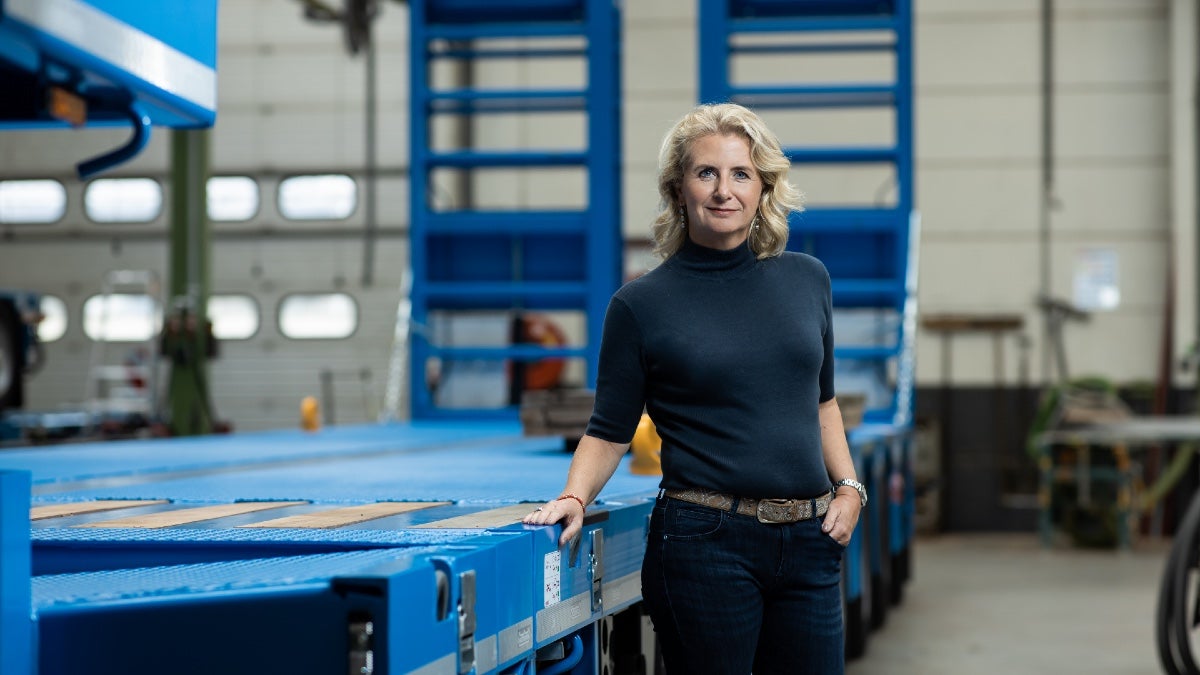Congratulations on your award.
„At last it’s been announced! I’ve known about it for a year and a half already, but the ceremony was postponed due to the coronavirus outbreak. It’s been hard to keep my mouth shut for all this time.It doesn’t feel like recognition just for me – it also honours the efforts of all of our staff. As a company, we’ve undergone a transformation over the past decade. Much has changed. For the people who’ve been with us for a long time, this hasn’t always been an easy process."
In your speech, you mentioned that as a business administration student at Vrije Universiteit Amsterdam, you looked up to other businesswomen.
„That’s right. Back then, businesswoman Sylvia Tóth received the same award I’ve just received now. I believe Neelie Kroes presented the award that year. They were – and are – hugely successful. Their self-assurance and accomplishments are significant. I can still remember Neelie Kroes officially opening our premises in Wijchen in 1979, and feeling great respect for her at the time."
What exactly is the Koninklijke Nooteboom Groep (Royal Nooteboom Group) renowned for?
„If you’ve ever seen one of those huge trailers on the highway, chances are it’s one of ours. We’re a family business that started out with a blacksmith making horseshoes. Since then, we’ve grown to become the leading manufacturer of trailers for international oversize load road transport. There’s almost nothing for which we can’t provide the ideal transport solution: excavators, steel constructions, crane parts and wind turbine blades."
You originally came from the banking industry. What was it like to switch to trailers?
„It was quite an adjustment! (Laughs) I knew nothing about trailers, and I don’t know how to weld either. But that’s what makes it so great. Everyone here specialises in their own thing. If you value everyone, then you don't need to know everything yourself. You mainly have to ensure that you’ve got the right people in the right place."
„When it comes to the big picture, that’s where I step in. We’ve come a long way. I came in during the financial crisis, when we’d lost seventy percent of our revenue. The experience and expertise I’d gained at Van Lanschot and ING helped turn things around. The only thing was that when I joined the company, I was suddenly sitting on the other side of the table."
What is one of the cornerstones that has enabled you to achieve the transformation you mentioned earlier?
„I believe it’s important for everyone in the company to have a feeling of responsibility. That’s why we introduced self-managing teams. This distributes responsibility across the board. It also frees me up to keep developing by attending conferences, and to keep talking with suppliers and networking."

As a child, did you ever imagine that you would end up in the family business one day?
„I never wanted that – I preferred to go my own way. Right from the start it was clear to my father that he would one day be the successor. He didn’t want to do that to me and my two sisters. Instead, he encouraged us to do what we wanted to. In those days, it was also far less common for women – and therefore one of us three – to work in a technical environment."
Yet you still ended up in the business world. Why was that?
„I was fascinated by figures and business administration. The great thing about the programme I did was the combination of very theoretical subjects with practical subjects such as presenting, meeting and negotiating. It prepared me completely for business. I actually really wanted to work in a dealing room, but I soon abandoned that idea."
In the coming year, you’re going to dedicate your efforts to women's entrepreneurship. What are you planning to do?
„First of all, it is important to keep the discussions going around this topic. But as a company, as well as talking about it, you also have to put your money where your mouth is. For example, we have appointed more women to key positions, which means adapting as a company. We start early here, but if you have kids, you may find that things are a little chaotic in the morning, or you may still have to take your kids to where they need to be. As a company, you have to be flexible enough to enable employees to take care of home-related matters."
What discussion are you referring to exactly?
„There are still entrenched beliefs in society when it comes to women who work. I have a son myself and I put him in daycare for four days per week. I was sometimes asked whether that wasn't a bit too much. Well, it depends on the country you live in – it’s perfectly normal in France or Denmark, for example."
„Dutch women tend to mainly work part-time. You could say that women don’t want to work, but perhaps there’s more to this than meets the eye. I think we perpetuate this phenomenon because it’s based on particular mindsets. Is daycare really just daycare, or is it part of a child's development? In other countries, people believe that daycare is actually good for a child. What’s more, it’s free of charge there, and there is little to no waiting period, unlike the situation here in the Netherlands."
Finally, is there anything you wish you’d already known at the start of your career?
„I used to think I had to act like a man. I felt as if I had to adapt myself to suit them. I know that’s nonsense now. It’s actually good for women to stand out. There’s no need for that macho behaviour. You are who you are, and that’s good enough."








